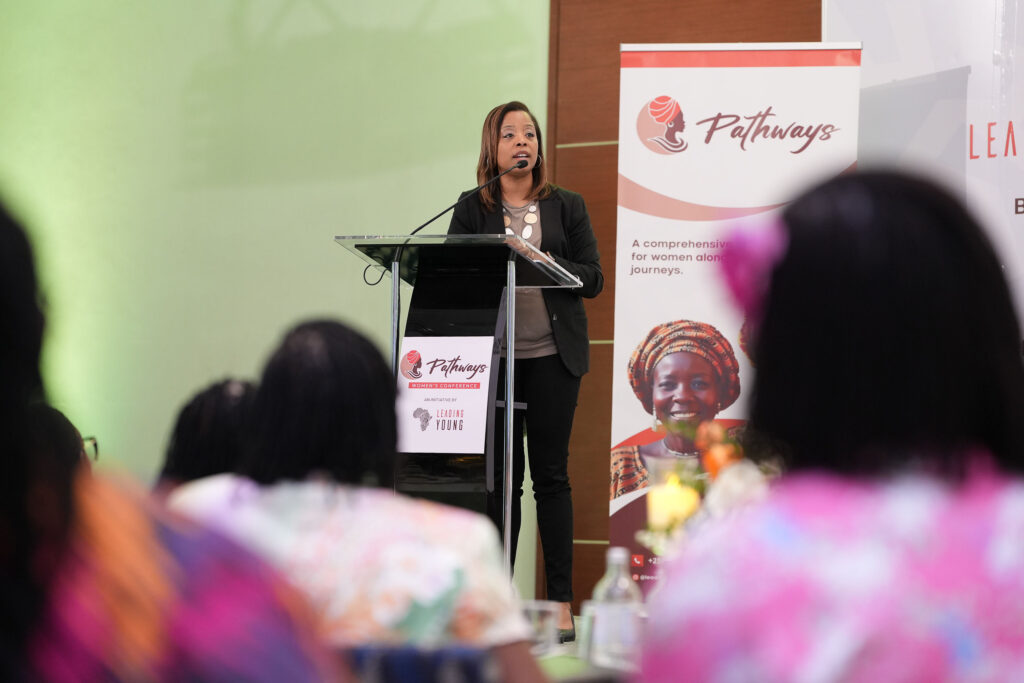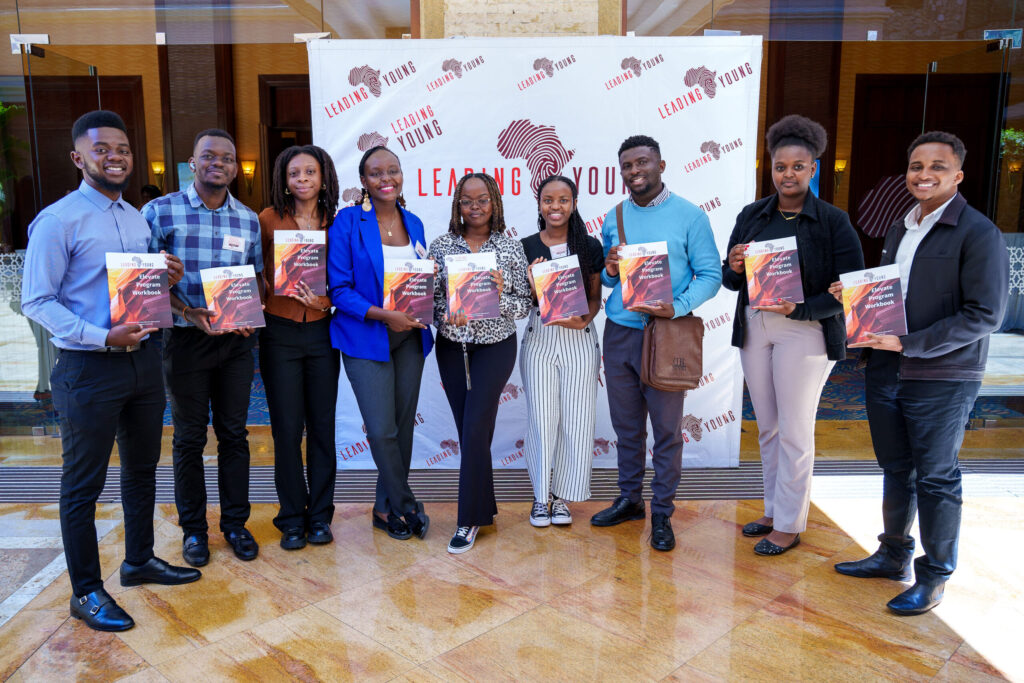A Legacy of Gravitas

At the Pathways Women’s Conference, Dr. Nicole Martin delivered an awe-inspiring closing address that drew together the threads of wisdom shared throughout the sessions. With depth, passion, and conviction, she reminded participants that gravitas is not something to be chased — it is cultivated from within. To illustrate what true gravitas looks like, Dr. Martin shared the extraordinary story of her grandmother, Estel Curtis. Born to newly freed slaves, Estel lived a life of conviction and courage. She built a church, launched a biscuit company to feed hungry children, and taught them how to bake. When faced with racial injustice, she chained herself to a radiator in protest until change came. Her fervent prayer –“Bless the seed of my seed, of my seed” – left a spiritual legacy that continues to shape generations. This legacy, Dr. Martin emphasized, is the foundation of gravitas: a quality not based on outward show but on inner strength, conviction, and faith. The Pressure of Appearance vs. Identity One of the most pressing challenges women face is the constant societal pressure to prioritize appearance over substance. Too often, women are remembered for what they wore, while men are remembered for what they said. Dr. Martin challenged this mindset, urging women to reclaim their identity by valuing intellect, influence, and the impact of their work. “We are called to rise in times like these,” she declared. The Three Pillars of Gravitas Dr. Martin outlined three pillars of gravitas that can guide women on their journey: Orthodoxy (Right Thinking): Gravitas begins with knowing who you are. Women must ground themselves in right knowledge and in the legacies that preceded them. True confidence flows from identity, not external validation. Orthopraxy (Right Action): Gravitas is lived out in service. It is not about recognition or fame but about making a difference through acts of sacrifice and compassion. Just as Christ modeled service, women are called to serve with purpose. Orthopathy (Right Feeling): Gravitas embraces emotions rather than denying them. Dr. Martin reminded participants that feelings are not a weakness but a pathway to authenticity and connection. Vulnerability, when embraced, fuels empathy and strength. Gravitas Through Surrender Ultimately, gravitas is inseparable from humility and surrender. It is found when we let go of pride and allow God’s grace to shine through our lives. When rooted in faith, our brokenness becomes a canvas for God’s glory. “Gravitas is within us.” ~ Dr. Martin The Pathways Women’s Conference left every participant with a renewed vision: to embody gravitas not as a performance but as a legacy, a service, and a reflection of faith.
BRIDGING THE LEADERSHIP GAP FOR GEN-Z

In an era defined by rapid technological advancement and shifting workplace dynamics, a striking pattern has emerged: Generation Z. These are our digital natives born between 1997 and 2012 who are reshaping how leadership development unfolds. Recent findings from our comprehensive research survey on Youth Leadership and Civic Engagement have revealed that mentorship stands as the cornerstone of leadership development for young adults aged 18-25, outpacing all other methodologies. 73% of Gen Z respondents ranked mentorship as their preferred leadership development method, significantly ahead of practical experience (58%) and formal training (42%). Considering this statistic, what is the GEN-Z leadership mindset? Well, to develop the next generation of leaders effectively, we must first understand what makes them fundamentally different from their predecessors. First, Digital Fluency with Human Connection: Unlike Millennials who witnessed the digital revolution, Gen Z was born into it. They navigate digital spaces with unprecedented ease yet paradoxically crave authentic human connection particularly in professional development. Second, Value-Driven Decision Making: Research shows that 82% of Gen Z prioritize alignment with personal values when choosing career paths and leadership opportunities. This generation seeks purpose beyond paycheck. Third, Entrepreneurial Mindset: Having witnessed economic volatility throughout their formative years, 49% of Gen Z respondents expressed interest in entrepreneurship or creating their own leadership pathways. Lastly, Diversity as Default: As the most diverse generation in history, Gen Z views inclusive leadership not as an initiative but as a fundamental expectation. These characteristics illuminate why traditional leadership development approaches often fall short. While previous generations might have valued climbing predefined corporate ladders, Gen Z seeks guides who can help them forge their own paths. Why then does Mentorship resonate uniquely with Gen Z? While formal training programs and academic courses have long been staples of leadership development, today’s young adults are seeking more personalized, relationship-based approaches to growth. The survey revealed that mentorship, followed by practical experience and formal training, forms the cornerstone of how Gen Z wants to develop leadership capabilities. This preference isn’t merely coincidental. It aligns perfectly with broader generational traits. Gen Z has grown up in an era of algorithmically curated content and personalized experiences. From Netflix recommendations to Spotify playlists, they expect customization in every aspect of life. “I don’t just want to be told how to lead, I want someone who understands my specific challenges and can help me navigate them in real-time. One-size-fits-all training feels outdated.” – One of the survey respondents, 22 Perhaps most tellingly, Gen Z came of age during a pandemic that disrupted traditional educational and professional pathways. This generation witnessed firsthand how rapidly established systems can change, fueling their desire for adaptive guidance rather than rigid frameworks. The Mentorship Advantage: What Data Reveals Our research uncovered compelling evidence for mentorship’s effectiveness with Gen Z: Metric With Structured Mentorship Without Mentorship Leadership confidence score 78% 42% Project completion rate 86% 64% Organizational retention 73% 51% Innovation contribution 68% 37% Designing Effective Mentorship Programs for Young Adults Effective mentorship programs balance structured frameworks with flexibility, establishing clear objectives while allowing relationships to develop naturally and learning paths to be personalized. This approach particularly resonates with Gen Z, who appreciate guidance that provides direction without excessive control. Technology integration plays a crucial role in modern mentorship, with digital platforms facilitating matching, communication, and progress tracking. The strong comfort level with virtual platforms (91% of young adults report good to excellent comfort) makes hybrid mentorship models particularly effective for today’s emerging leaders. Successful mentorship initiatives consistently connect theoretical learning to practical application, addressing the significant preference for hands-on experience in leadership development. Gen Z particularly values immediate relevance and real-world application of knowledge gained. Cross-generational matching strategies create valuable opportunities by pairing young leaders with mentors from diverse age groups and backgrounds, expanding networks while bridging generational gaps in understanding and communication. Innovative programs incorporate reverse mentorship opportunities, creating spaces where Gen Z can share their unique perspectives and digital fluency with senior leaders. This bidirectional approach fosters mutual growth and drives organizational innovation by leveraging the distinctive strengths of different generations. Moving Forward: Creating a Mentorship Culture Implementing isolated mentorship programs, while valuable, achieves limited impact compared to fostering an organizational culture that values mentorship at all levels. Leadership organizations can lead this shift by: Modeling mentorship at the executive level Recognizing and rewarding mentorship contributions Integrating mentorship into broader leadership development strategies Creating communities of practice around mentorship excellence Developing mentorship metrics that track both quantitative outcomes and qualitative experiences The Future of Leadership Development is Relational As we look ahead, the leadership development landscape will continue to evolve. Organizations that recognize and respond to Gen Z’s preference for mentorship will gain significant advantages in talent development and retention. By creating mentorship ecosystems that honor both time-tested leadership principles and emerging generational preferences, we can build bridges between current leaders and rising talent. These connections facilitate not just knowledge transfer but the cultivation of leadership identity and belonging which are the critical factors for Gen Z engagement. This is particularly evident in political and civic spaces, where Gen Z shows a distinctive approach to engagement. Unlike previous generations, they tend to mobilize around specific issues rather than party affiliations, with 67% reporting that they prefer cause-based political involvement. Mentorship in these contexts becomes crucial, as it helps young leaders navigate complex political systems while maintaining their value-driven approach to change-making. “Leadership is not about being in charge. It’s about taking care of those in your charge. The most effective mentorship doesn’t just teach skills; it helps young leaders discover their authentic voice and purpose. For Gen Z, leadership isn’t about position, it’s about impact.” – Simon Sinek As organizations develop structured mentorship programs that respond to the preferences of young leaders, they not only address the immediate development needs of Gen Z but also cultivate future mentors who will continue this vital leadership development approach. By prioritizing mentorship, leadership organizations can create powerful bridges between current leaders and the next generation, facilitating
